|
Books Should Be Free Loyal Books Free Public Domain Audiobooks & eBook Downloads |
|
|
Books Should Be Free Loyal Books Free Public Domain Audiobooks & eBook Downloads |
|
Literature |
|---|
|
Book type:
Sort by:
View by:
|
By: R. F. Murray (1863-1894) | |
|---|---|
 Wasted Day
Wasted Day
Robert Fuller Murray was a Victorian poet. Although born in the United States, Murray lived most of his life in the United Kingdom, most notably in St Andrews, Scotland. He wrote two books of poetry and was published occasionally in periodicals. | |
By: Andrew Lang (1844-1912) | |
|---|---|
 The Puzzle of Dickens's Last Plot
The Puzzle of Dickens's Last Plot
| |
 Grass of Parnassus
Grass of Parnassus
| |
 Sir Walter Scott and the Border Minstrelsy
Sir Walter Scott and the Border Minstrelsy
| |
 Rhymes a la Mode
Rhymes a la Mode
| |
 Much Darker Days
Much Darker Days
| |
 Letters to Dead Authors
Letters to Dead Authors
| |
By: Washington Irving (1783-1859) | |
|---|---|
 The Sketch Book of Geoffrey Crayon, Gent.
The Sketch Book of Geoffrey Crayon, Gent.
Apart from "Rip Van Winkle" and "The Legend of Sleepy Hollow" - the pieces which made both Irving and The Sketch Book famous - other tales include "Roscoe", "The Broken Heart", "The Art of Book-making", "A Royal Poet", "The Spectre Bridegroom", "Westminster Abbey", "Little Britain", and "John Bull". His stories were highly influenced by German folktales, with "The Legend of Sleepy Hollow" being inspired by a folktale recorded by Karl Musaus. Stories range from the maudlin (such as "The Wife" and... | |
 The Short-story
The Short-story
| |
 Old Christmas: From the Sketch Book of Washington Irving
Old Christmas: From the Sketch Book of Washington Irving
Washington Irving's Old Christmas tells of an American's travels through England during the Christmas season. Through a chance meeting with an old friend he is able to experience Christmas in a stately manor house. Through his eyes as a houseguest he glimpses the uniquely British customs and celebrations of Christmas as it would have been experienced during the Middle Ages, rather than in the early 19th century. | |
 Little Britain
Little Britain
| |
By: Robert Frost | |
|---|---|
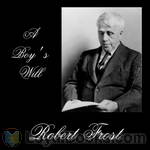 A Boy's Will
A Boy's Will
Robert Frost preferred to describe the New England countryside using everyday language. He used both as tools to explore world views and life philosophies. A Boy's Will was his first poetry anthology. | |
By: Victor Appleton | |
|---|---|
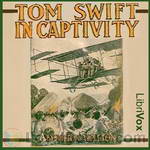 Tom Swift in Captivity
Tom Swift in Captivity
Tom Swift is approached by Mr. Preston, the owner of a circus, and begins to tell the story of Jake Poddington, Mr. Preston's most skilled hunter. As it turns out, Jake went missing just after sending word to Preston that Jake was on the trail of a tribe of giants, somewhere in South Africa. That was the last Preston has heard of Jake Poddington. Preston would like Tom to use one of his airships to search for Poddington, and if possible, bring back a giant for the circus.Listeners are forewarned that some elements and characters included in Tom Swift books portray certain ethnic groups in a very dated manner that modern readers, and listeners, may find offensive... | |
By: Jean Webster (1867-1916) | |
|---|---|
 Dear Enemy
Dear Enemy
Dear Enemy is the sequel to Jean Webster’s novel Daddy-Long-Legs. The story as presented in a series of letters written by Sallie McBride, Judy Abbott’s college mate in Daddy-Long-Legs. Among the recipients of the letters are the president of the orphanage where Sallie is filling in until a new director can be installed, his wife (Judy Abbott of Daddy-Long-Legs), and the orphanage’s doctor (to whom Sallie addresses her letters: “Dear Enemy”). | |
 The Four-Pools Mystery
The Four-Pools Mystery
In The Four Pools Mystery the tyrannical plantation owner is deemed responsible for his own murder because of his mistreatment of the former slaves who continued in his employment after the war. Jean Webster (pseudonym for Alice Jane Chandler Webster) was born July 24, 1876 and died June 11, 1916. She was an American writer and author of many books including Daddy-Long-Legs and Dear Enemy. (Wiki) | |
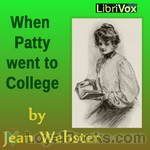 When Patty Went to College
When Patty Went to College
When Patty Went to College is Jean Webster's first novel, published in 1903. It is a humorous look at life in an all-girls college at the turn of the 20th century. Patty Wyatt, the protagonist of this story is a bright, fun loving, imperturbable girl who does not like to conform. The book describes her many escapades on campus during her senior year at college. Patty enjoys life on campus and uses her energies in playing pranks and for the entertainment of herself and her friends. An intelligent girl, she uses creative methods to study only as much as she feels necessary... | |
 Jerry
Jerry
Jerry is the humorous story of a young man's attempt to win his lady. Jerry is waiting for his friends at a hotel in Italy, and is bored and lonely. When he hears that a beautiful American lady, Constance Wilder, is staying nearby, he tries to visit her. After an awkward first meeting, he tries to catch her attention by pretending to be a peasant tour guide. She recognizes him for what he is, but pretends not to, and a lively charade is carried on as they tease and fall in love. A clean, sweet, funny historical fiction/romance. | |
 Jerry Junior
Jerry Junior
| |
By: Ralph Waldo Emerson | |
|---|---|
 Nature
Nature
“Nature” is a short essay by Ralph Waldo Emerson published anonymously in 1836. It is in this essay that the foundation of transcendentalism is put forth, a belief system that espouses a non-traditional appreciation of nature. Recent advances in zoology, botany, and geology confirmed Emerson’s intuitions about the intricate relationships of nature at large. The publication of “Nature” is usually taken to be the watershed moment at which transcendentalism became a major cultural movement... | |
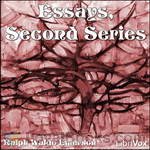 Essays, Second Series
Essays, Second Series
Ralph Waldo Emerson (1803 – 1882) was an American essayist, philosopher, and poet, best remembered for leading the Transcendentalist movement of the mid 19th century. His teachings directly influenced the growing New Thought movement of the mid-1800s. | |
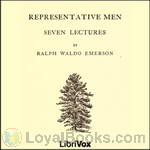 Representative Men
Representative Men
A series of biographical lectures originally published in 1850. Each chapter is a philosophical treatment of the life of an intellectual. The six representatives are Plato, Swedenborg, Shakespeare, Montaigne, Napolean and Goethe. (Introduction by S. Kovalchik) | |
 Essays by Ralph Waldo Emerson
Essays by Ralph Waldo Emerson
| |